I accidentally gave my newborn water! It happens, and you’re not the only one.
Just because you know you shouldn’t give water to your newborn baby doesn’t mean that this mistake won’t happen.
Being a mom means working all the time, and sometimes, it’s normal to lose our focus.
When you accidentally give your newborn water, the first thing to do is to remain calm and keep your composure. It’s time to pay attention and stay alert.
This article will help you learn why water isn’t suitable for newborns.
I Accidentally Gave My Newborn Water
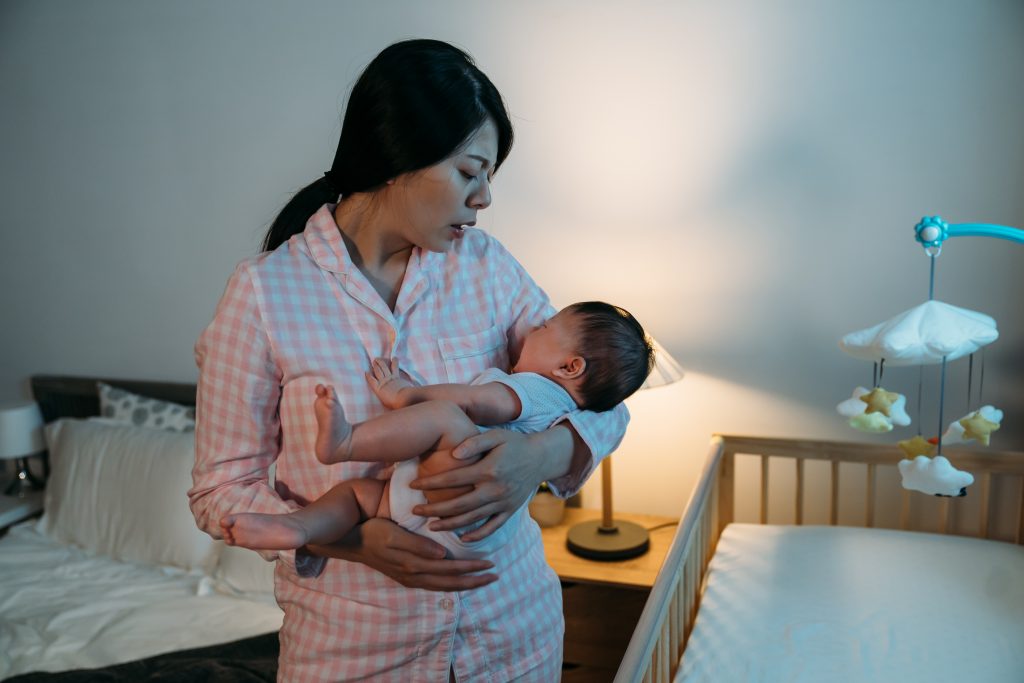
Before I explain why water is bad for babies, it’s important to tell you what to do when you accidentally give your baby water.
First of all, stay calm and pay attention to your baby. If you gave your baby just a little bit of water, everything will probably be fine.
Look for symptoms of water intoxication – drowsiness, weakness, irritability, swelling, crying, seizures, low body temperature, transparent urine, breathing problems, and other similar symptoms
Everything that seems out of the ordinary should be taken seriously, and you should rush to the emergency room. That’s all you can do.
Stay calm, focused, alert, and ready to go to the doctor.
If everything is fine, try to make sure that your baby eats as soon as possible. The water probably made your baby feel full, but water doesn’t have nutritional value.
As you can see, accidentally giving your baby water is dangerous because you can’t do anything on your own to fix that.
Why Is Water Bad For Newborns?
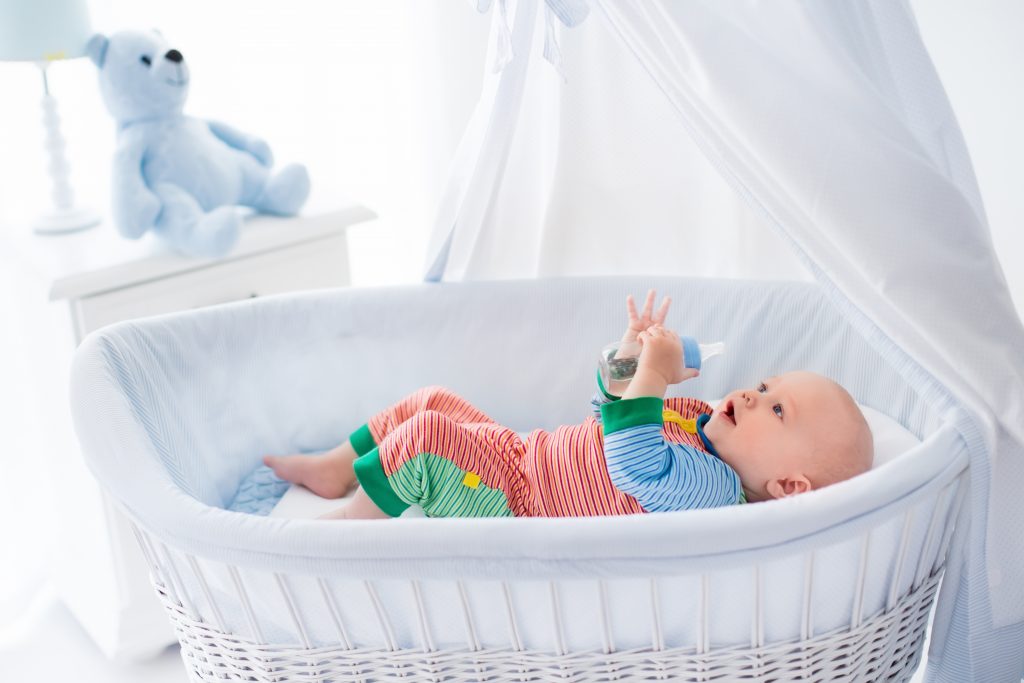
You’re here because you accidentally gave your newborn water, and now you’re afraid. Unfortunately, there aren’t any tips, tricks, or quick fixes to correct your mistake.
All you can do now is to follow your child’s behavior, and condition, and look for symptoms and possible changes.
The worst thing about being afraid is not knowing enough. So, let’s learn more about this topic.
Drinking water is not recommended for newborn babies because their bodies and organs are too small to handle water.
The only thing your newborn baby needs is breast milk or milk formula. Baby’s food is nutritional, and filled with important ingredients.
If you want your baby to grow and develop properly, you have to make sure to feed the baby regularly.
Babies digest breast milk and formula without problems, but water is different. First of all, water is not recommended because the baby’s stomach is very small and it can’t hold a lot of liquid.
Something that’s even more problematic is the baby’s small kidneys. Baby’s kidneys can’t process too much fluid.
So, if you don’t want to overload the baby and cause further complications, stay away from giving water to your child. A few things can happen if you accidentally give your newborn water.
Water Intoxication
Water intoxication can happen to babies and adults too. It just means that there is too much water in the body, and the kidneys can process it.
Water intoxication can lead to kidney dysfunction, shock, and even death. Water poisoning is also dangerous for the brain.
Since too much water can dilute the blood and cause problems with electrolytes, brain function could also be compromised.
Water intoxication is also known as hyperhydration and water toxemia. Many people think that water intoxication is only possible for babies.
However, adults are the ones who had more problems with this. Many athletes who wanted to hydrate themselves experienced water poisoning.
Some psychological medical conditions can also be the reason for drinking too much water.
All these things can happen to babies and adults. The difference is that they’re a lot more dangerous for babies.
Their little bodies and lower weight are not able to fight for too long. Also, their brains are developing, and if the brain function is disrupted, that could leave permanent consequences.
Hyponatremia
Hyponatremia is a condition characterized by low sodium in the blood. When there is too much water in the body, the blood gets diluted, and sodium levels drop.
Sodium is an important electrolyte, and when the sodium levels are low, it’s possible to experience vomiting, nausea, weakness, and even seizures.
It’s important to know that hyponatremia can be caused by certain medical conditions, not just due to hyper hydration.
If you notice hyponatremia symptoms and the doctor confirms it, you have to work on finding the cause. You have to be sure that this medical condition is caused by excess water.
No Calories
Even if water is safe for babies, it has no calories. Babies need calories and food to grow and develop.
Drinking water would fill their tummies, and they wouldn’t be hungry. Your baby needs real nutrients, not just something to fill their empty stomach.
This is just another reason why water isn’t good for newborns.
When To Give Your Baby Water?
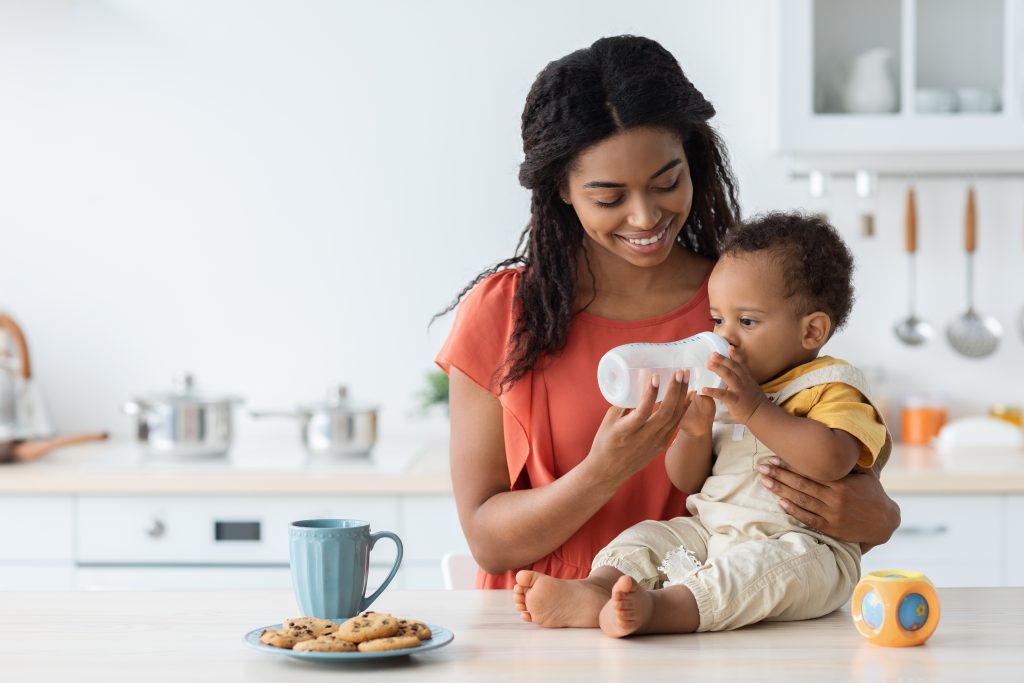
For the first 6 months, your baby doesn’t need anything but breast milk or milk formula. Those two are the ultimate baby drink.
When your child is 6 months old, you can start by giving them water. However, that amount should be limited.
According to some studies, 6 months old babies shouldn’t consume more than 50-100ml of water per day.
Their main source of hydration should still be breast milk or formula. Most babies won’t even like water when you give it to them.
Best Drinks For Children
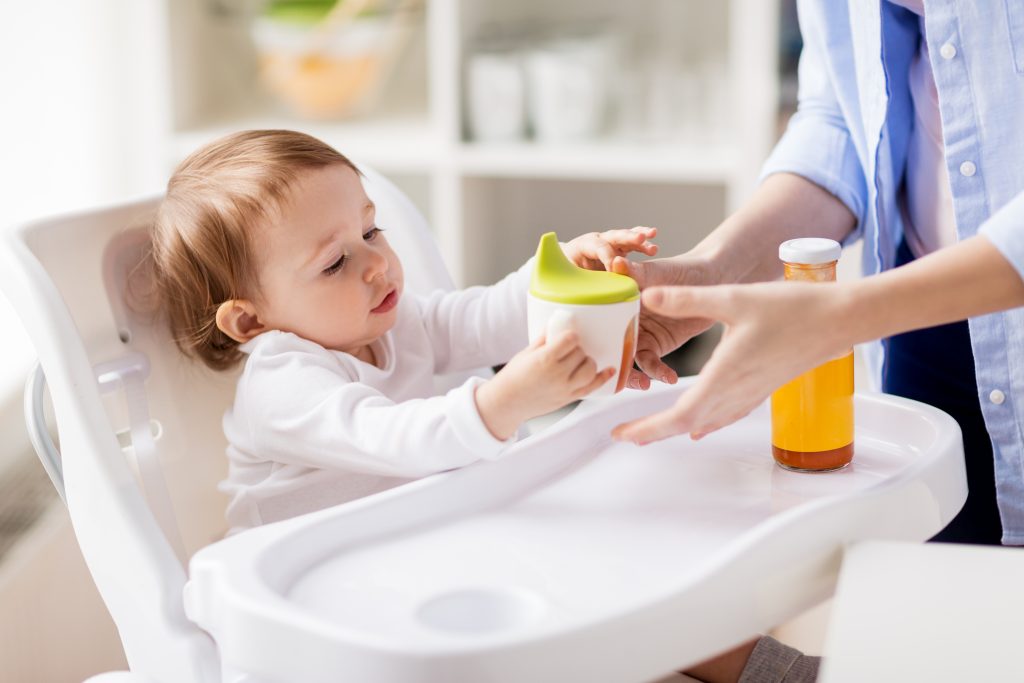
It’s essential to remember that water is not good for newborn babies, and it should be avoided until your child is 6 months old.
After that, you can start giving your child water. Avoid giving them other things during the first year of your child’s life.
It’s okay to give them some natural fruit juice or a smoothie. Regarding other types of milk, you should wait for their first birthday.
Cow’s milk, almond milk, or hemp milk is a great choice when looking for a different type of milk.
Water is harmful to newborns, but as your baby grows older, it’s important to teach your child to love water. Most kids love juices and sodas, but these can be unhealthy, especially if they’re store-bought.
In the past, most parents weren’t paying attention to drinks and diet, and that’s why so many people have problems with not liking water.
If you truly want to teach your child that water is amazing, don’t offer them other drinks. When you see that your kid likes water and asks for it, you can give them other drinks to try.
Plain water is essential for health and normal body function, but some other drinks can also be beneficial for health.
The purpose of my article is to teach you more hydration, water, and other fluids that are crucial for your baby’s health.
Water
We all know that water is one of the most essential things for health and life. Even though giving newborns water is not recommended, water is important for the rest of their life.
Water controls every process in our bodies, and hydrating is important. Hydration is even more important for kids.
Their bodies are smaller and their body temperature is more prone to changes. They’re more sensitive and immune-compromised. Their bodies, organs, and brain are still developing, and water is essential for their growth.
If your child hates water, you have to be persistent. As I’ve mentioned, offer them nothing but water.
When you give them water, try adding some lemon juice or a piece of fruit. Buy them a nice bottle with their favorite cartoon characters. Try to play a game that includes drinking water.
Toddlers and younger people don’t need much water, but it’s important for them to stay hydrated and learn how to love water.
Severe dehydration can cause serious complications. However, our bodies don’t function so great even when the level of dehydration is low.
Creating good and healthy life habits is important even when our kids are very young.
If you want to know more about different types of water, you should look into distilled water or alkaline water for babies.
Milk
Many parents include regular milk in their baby’s diet even before they turn 1. There are usually no reactions, but it’s still better to follow recommendations.
Full-fat milk is the best choice for your child. It contains a lot more nutrients your baby needs.
You can start giving your child low-fat milk after the age of 2. If your child isn’t lactose intolerant and doesn’t have any allergies connected to dairy, there is no need to give them plant-based milk.
Full-fat, cow’s milk is a much better choice. Still, if your family prefers another type of milk, it’s okay to use it. Oat milk, rice milk, and almond milk are also quite nutritious.
You can also learn more about the best yogurts for the baby.
Breast Milk
If your child is drinking your breast milk, it’s perfectly fine for that to continue even after you incorporate solid foods.
In some countries, breastfeeding is common until the age of 2.
If you’re not comfortable with breastfeeding for that long, you can always pump your milk and give it to your baby.
As you know, breast milk is the best form of milk for our kids. It contains everything they need for health and progress.
Fruit Juices
Store-bought fruit juices with added sugars, additives, and other harmful ingredients are not good for you or your children.
It’s not the end of the world if you give your kid this type of juice once in a while. But, please try to avoid it.
According to studies, these types of juices and carbonated drinks cause obesity, diabetes, and hormonal changes.
Making natural juice at home, without any added ingredients is allowed. It’s still important that your child drink more water than juice, but homemade juice is perfectly fine.
If you think that some juice is too sweet, you can always dilute it with water. Orange juice and lemonade are easy to make, and they taste great.
Pear juice and plum juice are also delicious, and they’re quite beneficial for regular bowel movements.
There are many juice recipes, so you can find something your child would like. Keep in mind that these juices should be made in smaller batches.
Since you can’t pasteurize them at home, they will go bad in a day or two.
Smoothies
Some people wouldn’t say that a smoothie is a drink. That is partially true, but since we all drink the smoothie, I see it as a drink.
Smoothies are a great way to make delicious desserts from fruit. Fruit is filled with water and healthy nutrients, and your child will love a good fruit smoothie.
For me, smoothies are a great way to give your child more vegetables. Even if your kid loves healthy food, a smoothie is a great way to increase vegetable intake.
Vegetables can be blended with some fruit and other more delicious ingredients. Your child won’t even notice the taste of veggies.
Don’t Worry; Accidents Happen
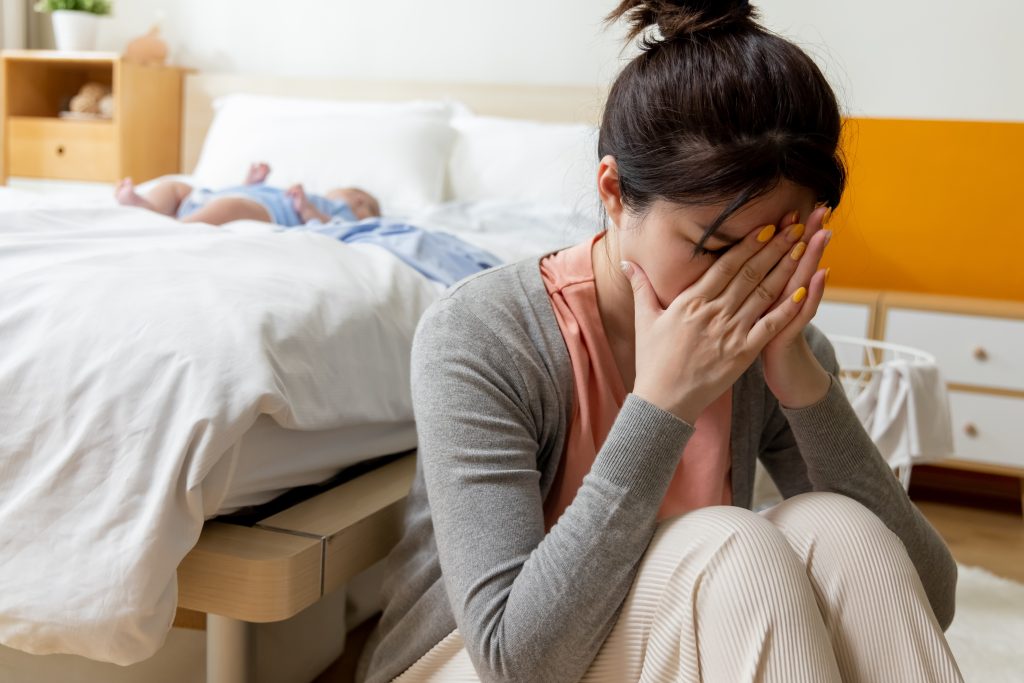
Sometimes you’re not the one who accidentally gives the baby water. Sometimes another family member does it.
Every mom leaves her baby with someone she trusts. However, people are different, and we can never know their parenting skill and their knowledge about these things.
Sometimes your babysitter or your partner will make a mistake. The most important thing is communication.
If you’re scared of negative situations, whenever you get home, feel free to ask others did they gave your baby water or food.
This way, you will know if monitoring the baby is necessary.
It’s even more important to tell people that your child doesn’t need water at all. Warn them, and you might prevent accidents.
Older people tend to give babies water, tea, or juice. This is not good for the baby, and just because nothing bad happens doesn’t mean it’s safe to do it.
Try to be reasonable and calm. Nobody is going to tell you – “Hey, I accidentally gave baby water,” – if you’re going to be mad.
It’s okay to let them know you’re scared and disappointed because they made such a mistake, but being mad and yelling won’t help anyone.
You have to build trust and understanding with people who take care of your children with you.
Besides these things where someone accidentally gave the baby water, it’s also possible that the baby drinks water without anyone’s “help.”
For example, if the child is swimming that young, you shouldn’t be surprised if he or she drinks some water accidentally.
It’s even possible to see babies drink some bath water while you’re bathing them.
The point is, if you’re being too hard on yourself with the words – “I accidentally gave my newborn water, I’m a bad mom!” – stop with that kind of attitude.
As you can see, these things can happen anytime, and sometimes it’s nobody’s fault.
Being a mom is hard, and parenting is hard. There will be accidents, and there will be worries.
Parenting is about moving forward and learning from mistakes. Being worried and anxious all the time is not the best solution.
As your child gets older, there will be different mistakes and that’s something unavoidable. There is no perfection, especially when you’re a parent.
All you can do is work hard to avoid accidents and worries. When they happen, focus on fixing them. Don’t waste your energy on panic, anxiety, and stress.
Common Accidents
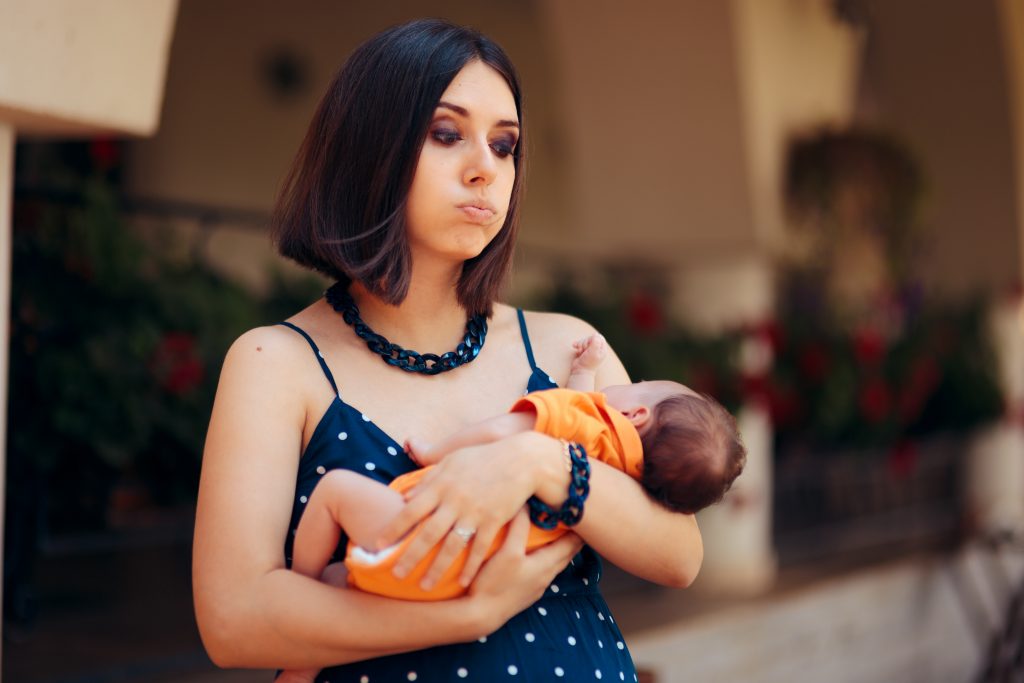
If this is your first serious mistake and you feel bad, it’s good to read about other negative scenarios.
You’re not the only one that is torturing herself with the thought – I accidentally gave my newborn water; what to do now? These things happen, and there are similar accidents are also common.
Consuming Old Formula
Many new parents experienced fear and panic because they gave their newborn old formula milk.
Sometimes you’re confused, or you don’t pay attention, and you make an error. In most cases, giving baby old formula doesn’t cause any serious problems.
Old baby formula is not so nutritious, but that is usually the biggest issue with it. In rare cases, giving your baby old formula can cause digestive problems such as vomiting, diarrhea, dehydration, and nausea.
You can treat these symptoms at home if you’ve experienced them before, but it’s always better to visit the doctor’s office. After all, dehydration is far more dangerous for babies.
Giving Your Baby Too Much Tylenol
Tylenol is a common medication for treating fever and cold. There are other medications similar to Tylenol, and all of them contain acetaminophen.
It’s not unusual for parents to give their babies too much Tylenol. The most common reason for this accident is using another medication that contains acetaminophen.
Sometimes it’s just an honest mistake and confusion, and in some cases, parents think that they should increase the dosage.
This is something that shouldn’t be done, and if you ever find yourself in this situation, you have to go to the emergency room right away.
Your baby needs medical attention. In some cases, even though the dosage was too high, nothing happens.
But, the consequences of overdosing on any medication are dangerous for everyone, not just babies. When giving your baby medications, always double-check dosage and instructions.
Giving Your Baby Honey
Many people think that giving your baby is forbidden because of possible honey allergy. According to recommendations, babies should not be given honey before their first birthday.
The reason for this rule is not an allergy. It’s actually connected to bacteria.
It’s possible that honey contains bacteria called Clostridium that causes infant botulism.
Infant botulism is a medical condition characterized by muscle weakness, floppiness, and general lethargy.
If you accidentally give your baby honey, stay alert. In most cases, honey doesn’t contain this bacteria. Monitor your child and go to the emergency room if you see anything odd.
Honey is present in many foods, and we use it to prepare many things. It happens that we forget to check the ingredients list.
Don’t panic, and be cautious from now on. After your child turns 1, honey will probably become an important part of your meal preparation.
Giving Your Baby Too Many Gas Drops
When your baby is colic, your best friends are gas drops. It’s possible to give your baby too many gas drops if you don’t follow instructions or simply don’t measure the right dosage.
If this happens, you can visit the doctor. In most cases, nothing happens; if everything seems fine, you don’t have to do anything.
If you’re unsure about this, you can always call poison control to learn more. There are no reports of serious complications if you accidentally give your baby too many gas drops.
Conclusion
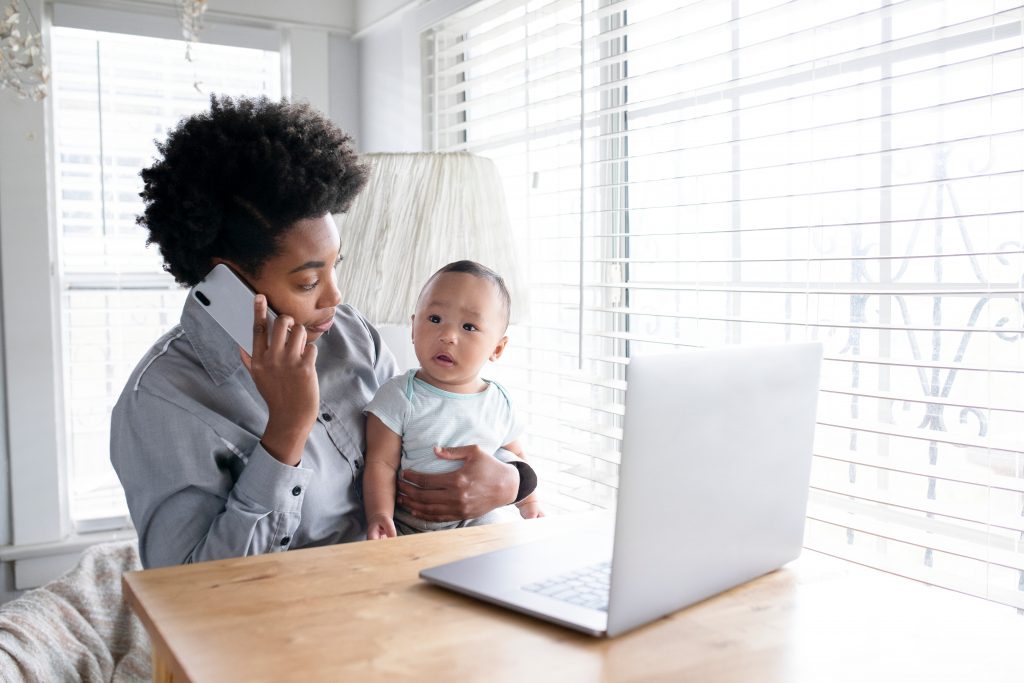
If you accidentally gave baby water and the baby is still too little to drink water, don’t panic and pay attention to the baby.
This article told you all about water poisoning and the effect of excess water on the body. If you’re scared, you can always seek medical help to ensure everything is fine.
Since nobody gives the baby a lot of water, it’s possible that nothing bad will happen. Staying cautious is your priority right now.
Keeping your baby safe is not an easy task. You’re also a human and make mistakes, just like everyone else.
Accidents happen, and this article showed you that other similar mistakes happen to parents. You’re doing your best, but nobody’s perfect. Everybody makes mistakes, and everybody has “those days”.
I’ve also mentioned the importance of water for older babies. Being informed and educated about water’s significance will be helpful to you and your baby.
Knowing more about the best drink options for your child is also good. When you strive to learn more about parenting, health, and babies in general, everything will be easier for you.
You probably feel bad for making a mistake, but I hope that this article helped you and enriched your knowledge.
You’re a great parent, and don’t beat yourself up. Even if something more serious happens after your mistake, you can’t anything about it. Your baby needs your strength and composure right now.
Hi all, I am Sidney, an accountant, a hobbyist photographer, and a mother to two sweet girls who are my motivation. I love sharing the tips and tricks I gained all these years I’ve been a mother. I hope it will help you!

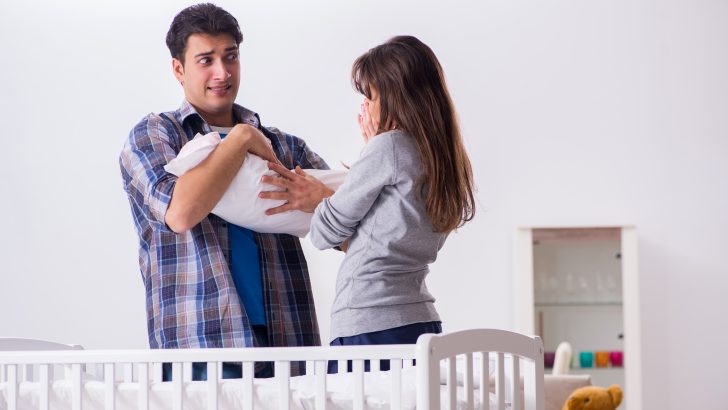
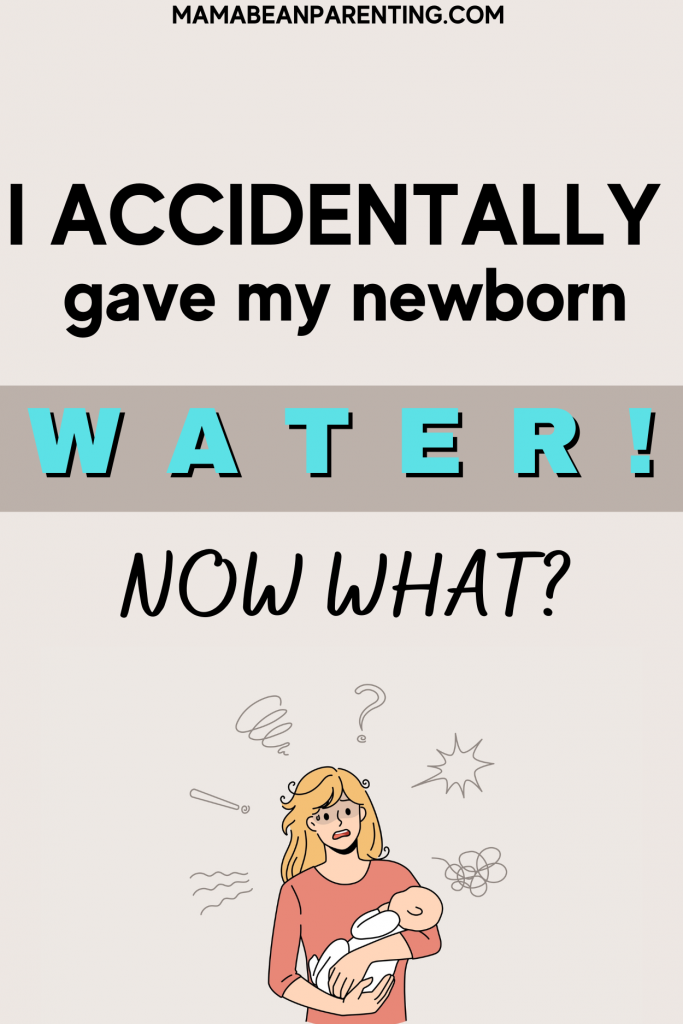
Can Babies Eat Jello? • Mama Bean Parenting
Tuesday 25th of April 2023
[…] things aren’t good for babies, but they are great for adults. For example, water and newborns aren’t a good […]
Can Kids Eat Rum Cake? • Mama Bean Parenting
Monday 17th of April 2023
[…] like you could accidentally give water to your newborn, you could accidentally give alcohol to your […]